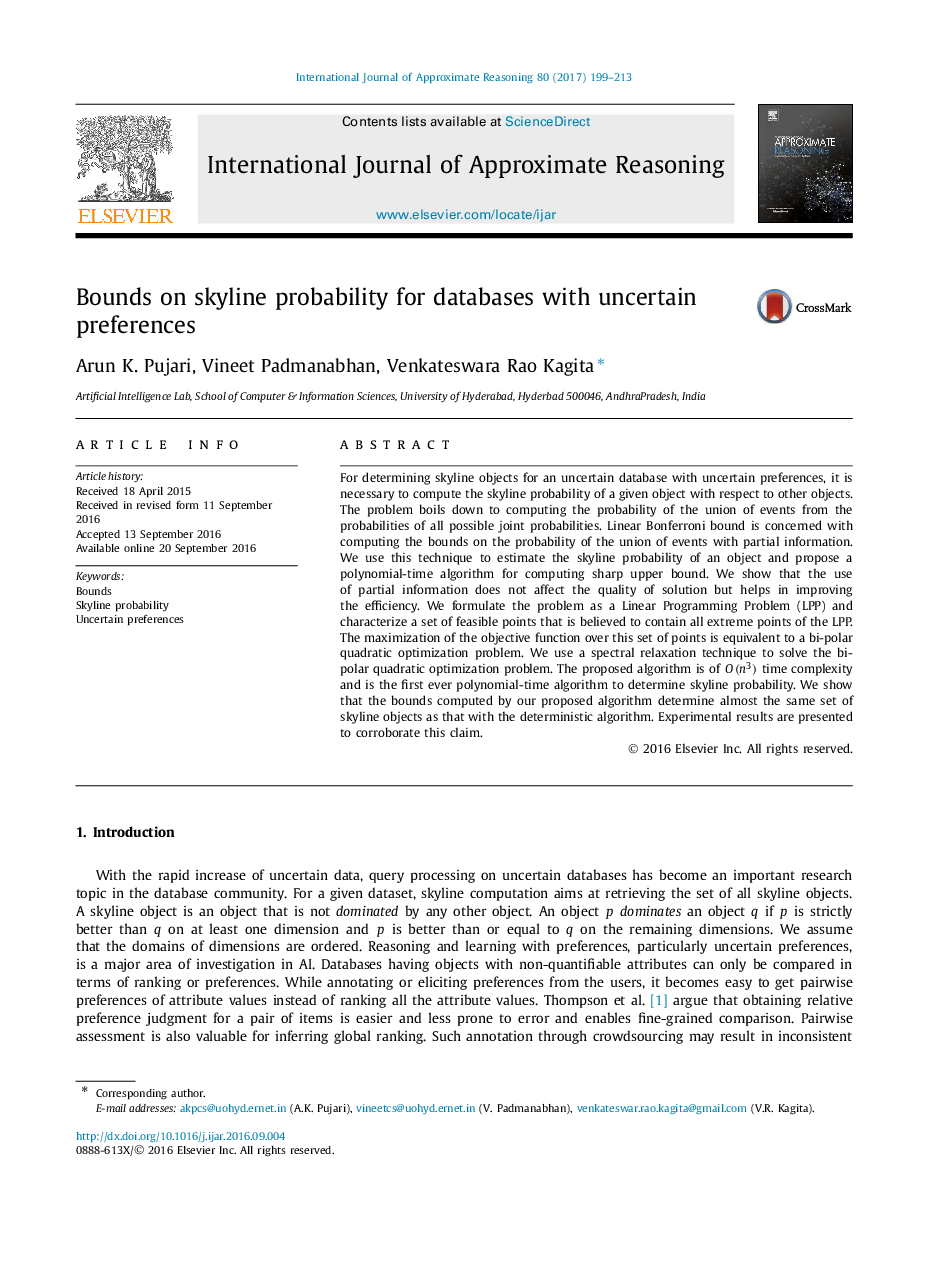| Article ID | Journal | Published Year | Pages | File Type |
|---|---|---|---|---|
| 6858888 | International Journal of Approximate Reasoning | 2017 | 15 Pages |
Abstract
For determining skyline objects for an uncertain database with uncertain preferences, it is necessary to compute the skyline probability of a given object with respect to other objects. The problem boils down to computing the probability of the union of events from the probabilities of all possible joint probabilities. Linear Bonferroni bound is concerned with computing the bounds on the probability of the union of events with partial information. We use this technique to estimate the skyline probability of an object and propose a polynomial-time algorithm for computing sharp upper bound. We show that the use of partial information does not affect the quality of solution but helps in improving the efficiency. We formulate the problem as a Linear Programming Problem (LPP) and characterize a set of feasible points that is believed to contain all extreme points of the LPP. The maximization of the objective function over this set of points is equivalent to a bi-polar quadratic optimization problem. We use a spectral relaxation technique to solve the bi-polar quadratic optimization problem. The proposed algorithm is of O(n3) time complexity and is the first ever polynomial-time algorithm to determine skyline probability. We show that the bounds computed by our proposed algorithm determine almost the same set of skyline objects as that with the deterministic algorithm. Experimental results are presented to corroborate this claim.
Keywords
Related Topics
Physical Sciences and Engineering
Computer Science
Artificial Intelligence
Authors
Arun K. Pujari, Vineet Padmanabhan, Venkateswara Rao Kagita,
